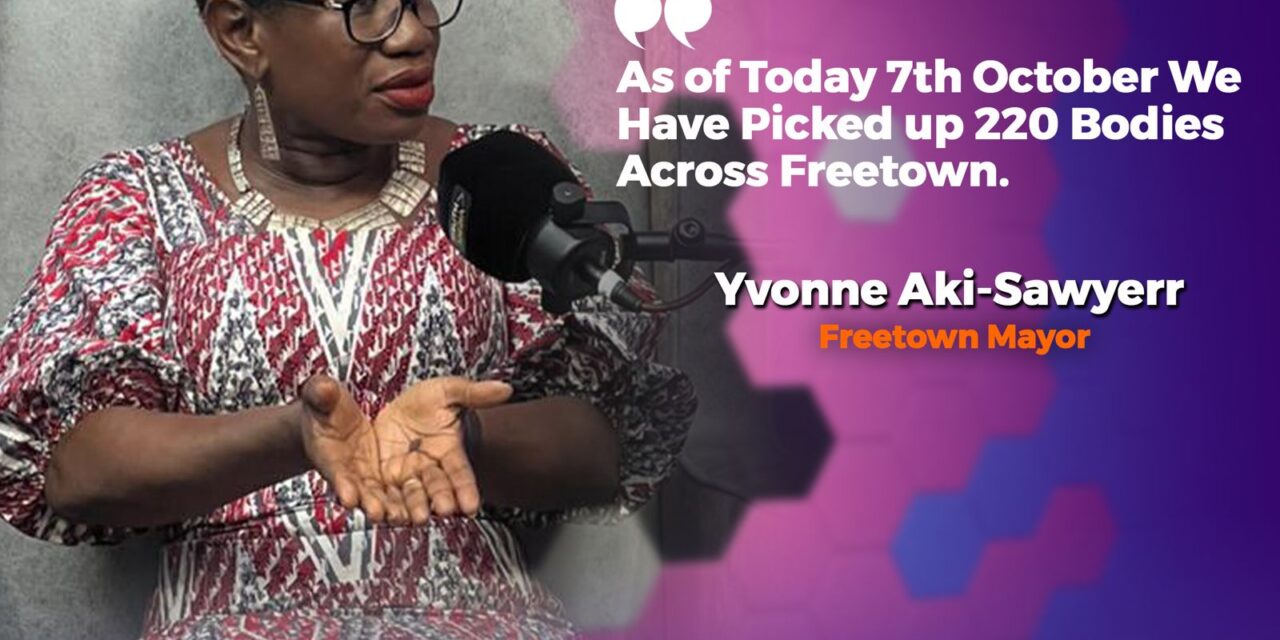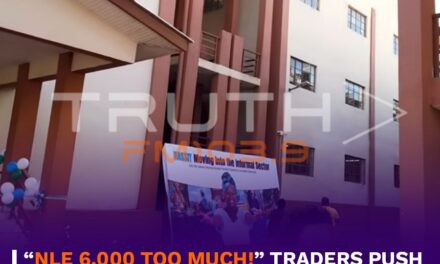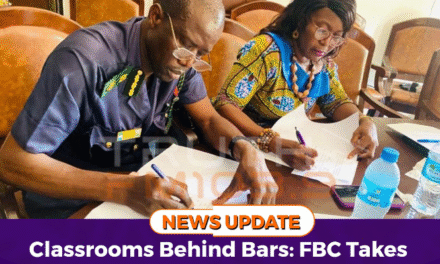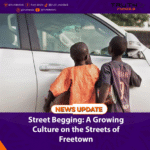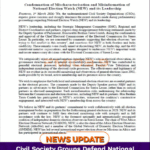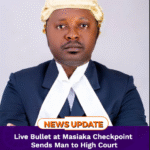Freetown, October 7th 2025– In a shocking revelation that tells the depth of Sierra Leone’s drug epidemic, Mayor of Freetown Yvonne Aki-Sawyerr has announced that the city council has recovered 220 unclaimed bodies across the capital between January and October 2025.
Speaking during a live broadcast on Truth FM’s Morning Devotion at Hill Cut Studios, the mayor attributed the alarming death toll largely to the ongoing Kush crisis ravaging communities.
“We have a national crisis. What is happening is totally unacceptable and abnormal,” Aki-Sawyerr declared. “As of today, 7th October, we have picked up 220 bodies across Freetown.”
The mayor painted a worrying picture of a city under siege, not by war, but by a synthetic drug that has infiltrated every layer of society. “There is a false narrative about people who take Kush,” she said. “These are university students, workers, professionals who are hooked.”
She warned that the normalization of drug abuse has led to a disturbing public indifference. “One of the things that troubles me the most is the attitude and behavior of Freetonians. The normalization of the abnormal should concern us all.”
The 220 bodies, she clarified, are not the total number of deaths in the city but represent those left in the streets, unclaimed, unidentified and untreated. “We do not do postmortems on these bodies. How do we know if some foul play is not taking place?” she asked. “We continue to pick up corpses, which is neither our mandate nor do we have resources for that, but we do it anyway.”
The council’s budget for social welfare in 2025 stands at a meager NLe 123,266. “If we are to provide services for people affected by Kush, we would have a minimal NLe 500 per person. What can that do?” she asked.
Mayor Aki-Sawyerr called for urgent and coordinated action. “We need to see daily raids. To the best of our knowledge, we [allegedly] have the most wanted drug lord in our city,” she said. “We have to break the supply chain. The situation demands a drastic response, if the political will is there.”
She also urged the government to reprioritize its national agenda. “You cannot implement Feed Salone if the people you wish to feed are dead.”
Beyond the drug crisis, the mayor highlighted systemic failures that have crippled service delivery. Of the projected NLe 77 billion in revenue, only 50% has been collected. “We spent NLe 2 billion on electricity last year and NLe 80 million a week on sanitation and vehicle operations,” she noted.
She cited compliance issues and praised the digitalization of the city’s property rate system as a major achievement. “We now have a high-resolution drone image of the city, from Orogu Bridge to Levuma,” she said.
Yet, infrastructure remains a major hurdle. “Forty-five to fifty percent of Freetown has no access roads because people have built everywhere. Council can do nothing about it since building permits are in the hands of the Ministry of Lands.”
The mayor lamented missed opportunities due to land access issues. “We have resources from the World Bank to build 121 public toilets, but council has no land in the city to situate them,” she said. “The World Bank approved $20 million for a landfill at Hastings, but we couldn’t get the land to do that.”
In closing, Mayor Aki-Sawyerr emphasized that fragmented governance will not solve the city’s problems. “The services are mainly government-provided. Dividing government will not improve services,” she said.
As Freetown grapples with the devastating toll of Kush and the broader failures of urban management, the mayor insists that city is in crisis, and only bold, united action can turn the tide.
